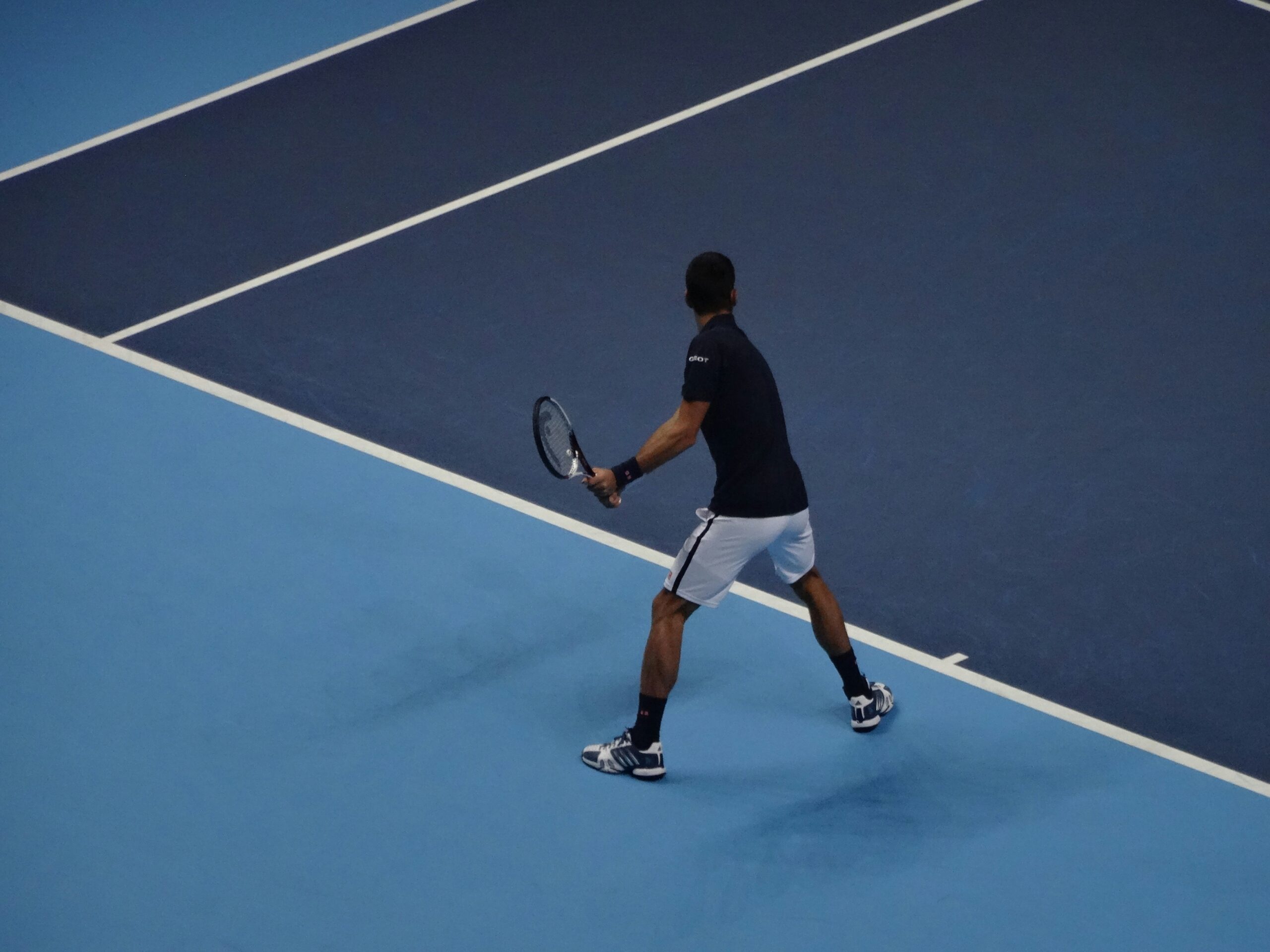
The mental aspect of tennis is often as demanding as the physical. Players who can maintain composure and Confidence have a significant advantage on the court. This guide explores strategies to strengthen the mental game of tennis, helping players stay focused, composed, and confident, regardless of the pressure.
Developing a Pre-Match Routine
A consistent pre-match routine sets the tone for mental focus and composure. This routine can include visualisation techniques, where players imagine themselves executing perfect strokes and winning points. Visualisation not only prepares the mind for the task ahead but also builds Confidence by mentally rehearsing successful outcomes. Another valuable component of a pre-match routine is a physical warm-up combined with deep breathing exercises to reduce anxiety and increase focus.
Music can also play a part in your routine, with certain rhythms or lyrics boosting morale and concentration. Experiment with different tracks to find what best helps you tune into the match mindset. It’s about creating a bubble of concentration that shields you from external pressures and focuses your mind on the game.
Maintaining Focus During Play
Once the match starts, maintaining focus is critical. One effective method is to use a mantra or a short phrase that can be repeated between points to recenter your attention. This could be something as simple as, “Focus on the now,” or “Quick feet, calm mind.” These reminders help keep the mind engaged and ward off distractions.
Another focus technique involves controlling the pace of the game. Between points, take your time to walk back to the baseline, use the towel, and take deep breaths. This not only helps in maintaining your rhythm but also gives you a moment to clear your mind and plan the next point without rushing.
Handling Pressure
Pressure is inevitable, especially during crucial points or when the game isn’t going your way. One key to handling pressure is to focus on the process, not the outcome. Concentrate on executing your strategy one point at a time rather than obsessing over the score or the final result. This approach reduces anxiety by breaking the match down into manageable segments where you can apply full focus.
Practising mindfulness can also alleviate pressure. Techniques like mindful breathing or focusing intensely on specific physical sensations during play (like the grip of the racket or the feel of the ball hitting the racket) can anchor you in the present moment, clearing out fears and what-ifs that undermine performance.
Building resilience
Resilience in tennis means bouncing back quickly from setbacks during a match. This requires a short memory for mistakes and a resolve to stay positive. After a lost point, instead of dwelling on the error, reset your focus immediately on the next point. Use mistakes as learning opportunities, briefly analyse what went wrong and what to adjust, and then let it go.
Encourage yourself with positive self-talk. Phrases like “You got this” or “Stay strong” can boost your morale and combat negative thoughts. Also, celebrate small victories during the match, like a well-played point or a successful strategy implementation, as these can build momentum and shift the match in your favour.
Cultivating Confidence
Confidence on the court doesn’t just happen; it’s cultivated through preparation and practice. Ensure that your training regimen not only focuses on physical and technical skills but also on scenarios that simulate match conditions. The more you expose yourself to what you’ll face in a match, the more confident you’ll become in your ability to handle it.
Also, keep a record of your performance in training and matches, noting what worked well. Reviewing these notes before a match can reinforce a sense of competence and readiness. Confidence can also come from physical fitness; knowing you’ve done the work to be physically ready can give you a mental edge over opponents who may not have prepared as thoroughly.
The mental game of tennis is complex and requires as much dedication as the physical aspects of the sport. By developing focused routines, practicing mindfulness, building resilience, and cultivating Confidence, players can enhance their mental toughness. These skills not only improve performance but also make the game more enjoyable and rewarding.